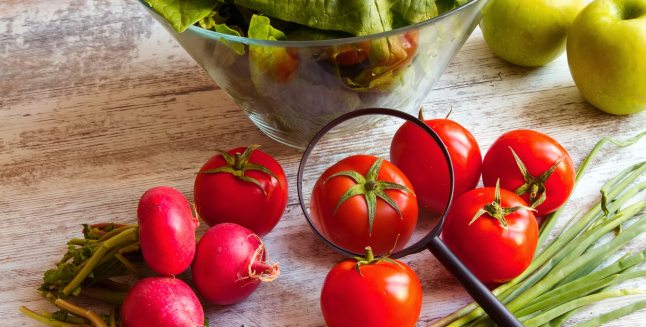Food Toxinfection - foods that increase the risk of illness

- abdominal pain and cramping - - headache - vomiting - fever - - weakness and fatigue - nausea - muscle aches. Meat. Raw chicken, turkey, and turkey meat are at increased risk of causing intoxication due to the two types of Campylobacter bacteria found commonly in the intestines of these birds. Bacteria often contaminate fresh poultry meat during the slaughter process and can survive until they are destroyed by thermal processing. vegetables. Green salad, cabbage, celery and tomatoes are a common source of food poisoning, especially when consuming raw.
They can be contaminated with harmful bacteria like E. coli, Salmonella and Listeria. Contamination may occur due to the water entering the soil and the dirty utensils used during processing. Green leaves are particularly risky because they are often consumed raw. Fish and seafood.
Fish that has been stored at inappropriate temperatures is at high risk of being contaminated with histamine, a toxin that is not destroyed by normal cooking temperatures and can cause scromoidosis, a toxic food reaction. also presents a food risk, since the algae consumed by shellfish produce a series of dangerous toxins. Meats. During processing, the ham, parizer, salami or sausage may be contaminated with harmful bacteria, including Listeria and. Contamination can occur through direct contact with contaminated raw meat or poor staff hygiene or processing plant equipment.
Raw milk. Pasteurization is the process of high temperature heating of a liquid or food to kill the harmful microorganisms. Manufacturers pasteurize dairy products, including milk and cheese, for safe consumption. Pasteurization kills harmful bacteria and parasites such as Brucella, Cryptosporidium, Listeria and Salmonella. They can be harmful when consumed raw or poorly prepared.
- The person who prepares food must practice good hygiene, thoroughly wash his hands before and after touching raw meat and vegetables. - Avoid washing raw meat, as it does not kill bacteria, but causes them to spread to other foods, cooking utensils and kitchen surfaces. - Do not eat food after expiration. - must be well prepared. - The foods should be stored in the refrigerator at +4 degrees Celsius.
- Purchases of food must be made only from verified stores. .
Source : sfatulmedicului.ro
Views : 2968
Popular Article
- (photo) Nude becomes art.
Posted: 2018-03-17, 9584 views.
- The harmful effects of air conditioning on the skin
Posted: 2017-06-08, 8266 views.
- 3 causes of dyed hair discoloration
Posted: 2017-06-15, 8140 views.
- Why early puberty occurs in girls: symptoms, favors, diagnosis and treatment
Posted: 2017-10-24, 7996 views.
- Good or bad skin treatments in the hot season
Posted: 2017-06-07, 7734 views.
Recommendations
- (photo) Nude becomes art.
Posted: 2018-03-17, 9584 views.
- The harmful effects of air conditioning on the skin
Posted: 2017-06-08, 8266 views.
- 3 causes of dyed hair discoloration
Posted: 2017-06-15, 8140 views.
- Good or bad skin treatments in the hot season
Posted: 2017-06-07, 7734 views.
- Risks of practicing sports on hot days
Posted: 2017-06-12, 7328 views.
 4 effective ingredients in the fight against acne.
4 effective ingredients in the fight against acne. How to get rid of hiccups fast
How to get rid of hiccups fast The wheat bran diet: the secret of lost pounds as if by magic
The wheat bran diet: the secret of lost pounds as if by magic The recipe that will sweeten your soul this weekend!
The recipe that will sweeten your soul this weekend!  Is it dangerous or not to refreeze meat after thawing it?
Is it dangerous or not to refreeze meat after thawing it?  The unusual sign of diabetes indicated by saliva.
The unusual sign of diabetes indicated by saliva. What to drink to boost your immune system.
What to drink to boost your immune system. 10 foods that help you never age.
10 foods that help you never age. What actually happens in your body if you drink a cup of coffee for breakfast
What actually happens in your body if you drink a cup of coffee for breakfast 5 surprising benefits of chia seeds
5 surprising benefits of chia seeds